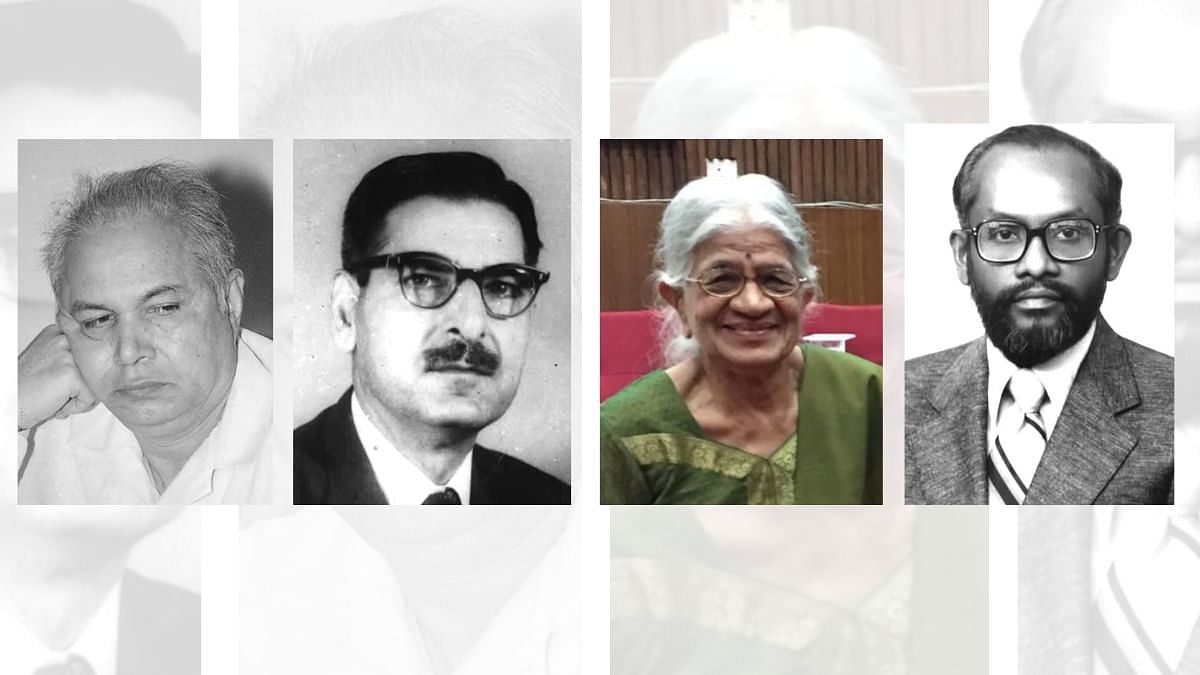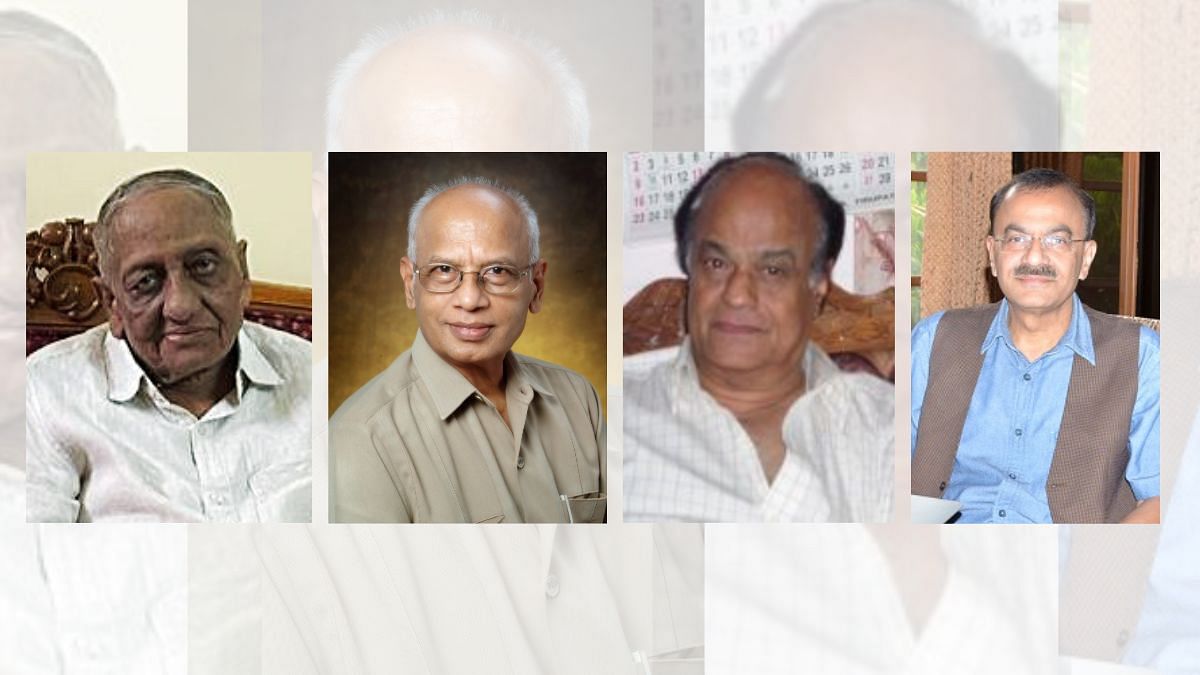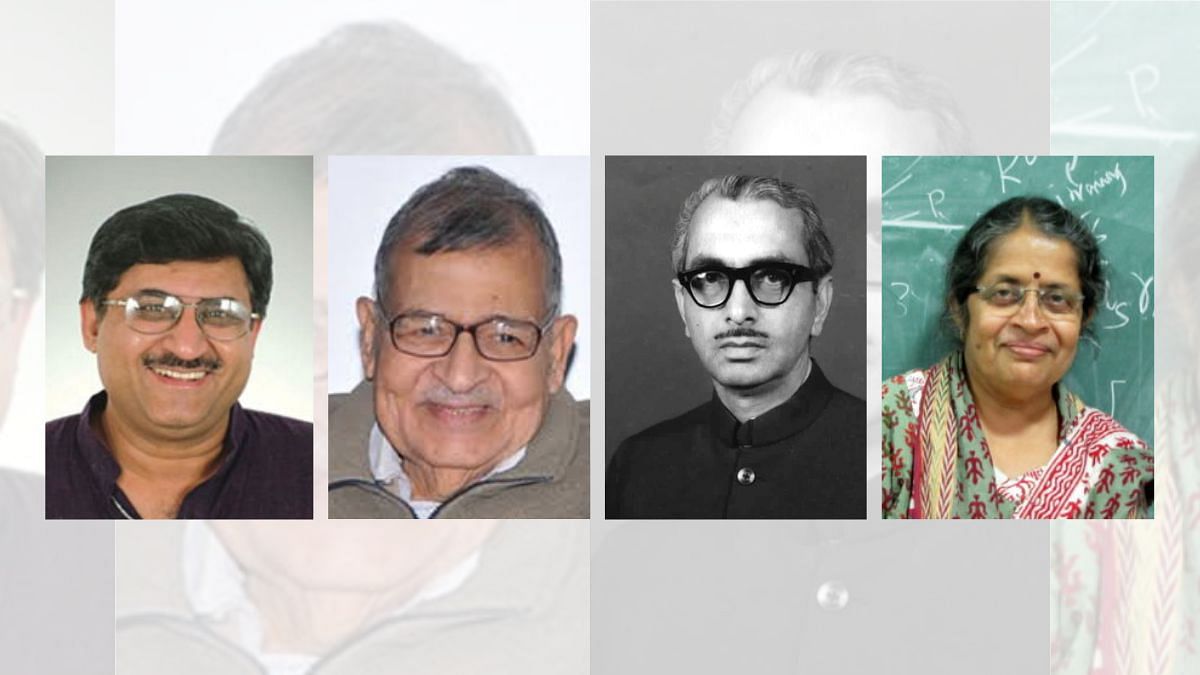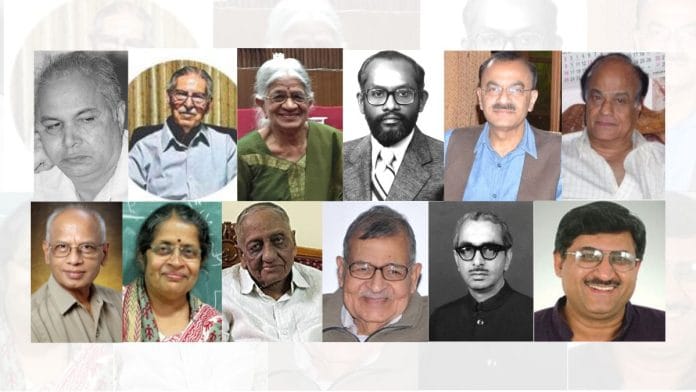New Delhi: 2024 was a year of remarkable scientific milestones, from the Gaganyaan mission edging India closer to sending humans to space to groundbreaking advancements in tissue-engineered tomato plants, revolutionising agriculture.
Amid this surge of innovation, India bid farewell to trailblazing scientists whose contributions have safeguarded society for decades.
From pioneering indigenous medical equipment for cardiac surgery to bolstering defence infrastructure, and the transformative social innovation of the oral contraceptive pill, ‘Saheli’, their legacies remain vital.

Prof Mohammad Shamim Jairajpuri, zoologist
Professor Jairajpuri, a world-renowned roundworm expert, passed away on 10 January. His research significantly benefited Indian farmers, helping them reduce crop damage and boost yields, particularly in rice cultivation, through natural pest control and soil enrichment.
More than five decades of his life at Aligarh Muslim University (AMU) were dedicated to identifying, classifying, and studying tiny worms found in soil and plants. Among the 500 new species he discovered, his work focused on three key types: one that damages crops, another that naturally controls pests by preying on harmful worms, and a third that enhances nutrient recycling by feeding on soil bacteria and fungi, ultimately improving plant health.
He was appointed the founding director of AMU’s Institute of Agriculture in 1993 and was also the first recipient of the prestigious E.K. Janaki Ammal National Award for Taxonomy in 1999.
Prof Nitya Anand, medicinal chemist
A former director (1974-1984) of the Central Drug Research Institute (CDRI), Lucknow, Professor Anand revolutionised contraceptives with ‘Saheli’—the world’s first non-steroidal oral birth control pill.
Launched in 1986 by then Prime Minister Rajiv Gandhi, ‘Saheli’ became part of India’s National Family Planning Programme nearly three decades later. Anand’s research also led to the development of drugs for tropical diseases like leprosy, malaria, and filariasis.
He was also the chairman of the Indian Pharmacopoeia Commission (2005) and the Ranbaxy Science Foundation (2013). Recognised for his contributions to drug discovery and public health, he was honoured with the Padma Shri in 2012. He died on 27 January at the age of 99.
Also Read: Bimla Buti didn’t study science until university. Vikram Sarabhai handpicked her to lead PRL
Prof. Bimla Buti, plasma physicist
One of India’s most formidable theoretical physicists, Bimla Buti joined the Physics Research Laboratory (PRL), Gujarat, as an associate professor in 1971. There, she launched the plasma physics programme, which eventually went on to form a new institute, the Institute of Plasma Research, under the Department of Atomic Energy. She retired as dean of faculty in 1993.
Buti used mathematical models to understand how complex processes work in space and plasma, like the sun’s corona, where certain waves, called solitons, could help explain its mysterious heating. She also demonstrated how there can be order even in chaotic systems—such as Jupiter’s turbulent atmosphere.
Her work earned her national and international recognition. Not only was she elected as the first woman physicist fellow of the Indian National Science Academy (INSA), she also served as director of plasma physics at the International Centre for Theoretical Physics (ICTP) in Trieste, Italy—a role she held for 18 years, from 1985 to 2003. She passed away on 24 February.
Dr Narayana Panicker Kochupillai, clinical endocrinologist
On 26 February, Dr Kochupillai, a pioneering medical research scientist who dedicated his life to combating iodine deficiency disorders, passed away at the age of 85.
A doctor at the All India Institute of Medical Sciences (AIIMS), Delhi, Kochupillai focused on thyroid hormones and, with funding from the Department of Science and Technology (DST), established a diagnostic facility at AIIMS to research and treat iodine deficiency-related disorders.
His studies in rural areas of the sub-Himalayan belt showed the severe impact of iodine deficiency on brain development in newborns and children living in goitre-endemic regions. This work led to the launch of the national iodization programme—a cost-effective strategy to reduce iodine deficiency and its associated health issues. He was awarded a Padma Shri in 2003 for his contributions to the field of public health.

Prof. Mohan Ramachandra Wani, cell biologist & immunologist
Professor Wani, former director of the National Centre for Cell Science (NCCS), Pune, actively researched the disease biology of bone and cartilage ailments, including osteoporosis, osteoarthritis, and rheumatoid arthritis.
On April 14, 2024, he passed away suddenly at the age of 59. His groundbreaking work included developing mouse models to study human osteoporosis, earning him a patent in October 2022.
Prof. Borra Madhava Reddy, atmospheric scientist
Professor Reddy, who retired as head of the Radio Science Division at the National Physical Laboratory (NPL) in New Delhi in 1995, made noteworthy improvements to radio communications in India.
He was the first to study the upper atmosphere using satellite data and discover that particle density increases during magnetic storms. A member of NASA’s SUNDIAL programme launched in 1996, he helped monitor the Sun’s impact on Earth’s atmosphere and space weather.
Reddy passed away on 28 May.
Dr Marthanda Varma Sankaran Valiathan, cardiac surgeon
Dr Valiathan, who passed away on 17 July, was a cardiac surgeon, innovator and institution builder.
He developed India’s first indigenous mechanical heart valves and spearheaded the production of affordable cardiac surgery consumables, such as blood bags, oxygenators and reservoirs, helping the country become self-reliant.
A passionate advocate of Ayurveda, he authored the books Legacy of Charaka, Legacy of Sushruta, and Legacy of Vagbhata—an attempt to make Ayurveda accessible. As the founding director of Sree Chitra Tirunal Institute for Medical Sciences and Technology (SCTIMST) and the first vice chancellor of Manipal Academy of Higher Education (MAHE), he was awarded some of India’s highest civilian honours: the Padma Shri, Padma Bhushan, and Padma Vibhushan.
Ram Narain Agarwal, aerospace scientist
Fondly remembered as the ‘father of the Agni Missile’, Dr Agarwal died on Independence Day at 83.
As the programme director of Agni Missile weaponisation, he led the development of India’s Integrated Guided Missile Programme, overseeing the successful launch of Agni-1 on 22 May 1989 and advancing versions up to Agni-5.
A scientist at the Defence Research and Development Organisation (DRDO), New Delhi, and the founding director of the Advanced Systems Laboratory (ASL), Hyderabad, he established critical technologies like re-entry systems, composite heat shields, and propulsion systems. Honoured with the Padma Shri (1990) and Padma Bhushan (2000), his work cemented India’s position in missile technology.

Girish Sahni, molecular biologist
Former Council of Scientific & Industrial Research (CSIR) director general Girish Sahni, who made notable contributions in the area of protein-based cardiovascular drugs, passed away on 19 August. Sahni developed India’s first indigenous ‘clot buster,’ a medicine that breaks up blood clots, revolutionising care for heart attack and stroke patients.
Sahni, who joined CSIR-Institute of Microbial Technology, Chandigarh in 1991, rose to become its director in 2005. Specialising in protein engineering and biotechnology, he developed the clot-breaking protein marketed by Cadila Pharmaceuticals as Stpase and licensed a similar drug to Nostrum Pharmaceuticals, USA, in 2006.
His work, which bridged science and industry, earned him several awards, including the National Biotechnology Product Development Award (2002), the CSIR Technology Shield (2001-02), and Panjab University’s Vigyan Ratna Award (2014).
Prof. Mahendra Singh Sodha, physicist
Professor Sodha is best known for applying his expertise in plasma physics and energy studies to renewable energy, a critical field in the fight against climate change. He is the author of 13 books, including ‘Solar Crop Drying’ and ‘Solar Passive Building: Science and Design’.
His research focused on energy conservation through innovative systems like roof and evaporative cooling.
After nearly three decades at Indian Institute of Technology, Delhi, he rose to deputy director before retiring in 1992. Sodha earned several awards, including the 1974 Shanti Swarup Bhatnagar Prize, 2002 Pioneer in Renewable Energy Award, and the Padma Shri in 2003. He passed away on 12 October at 92.
Prof. Sukh Dev, organic chemist
At 101, Professor Dev was one of the oldest living Indian Institute of Science (IISc) alumni before he passed away on 16 October. He is best known for his work in medicinal compounds, lipid disorders, pregnancy complications, and livestock parasites.
At the National Chemical Laboratory in Pune, he led pioneering research, developing innovative technologies to produce high-value products from natural resources like turpentine oil and medicinal plants.
His focus shifted to practical applications at the Malti-Chem Research Centre in Gujarat, where his team developed processes like converting glucose into sorbitol, which enabled the world to gain access to low-sugar versions of gum, candies, and even toothpaste. His contributions earned national accolades, including the Shanti Swarup Bhatnagar Award and Padma Bhushan in 2008.
Prof. Rohini Godbole, particle physicist
A particle physicist, Professor Godbole was known for her contributions to supersymmetry, collider physics, and the study of the Standard Model. A professor at IISc Bangalore, she authored influential works such as the ‘Theory and Phenomenology of Sparticles’ (of which she was one of three co-authors) advancing understanding in high-energy physics.
Her contributions earned her the Padma Shri in 2019. Beyond her scientific achievements, Godbole was a passionate advocate for gender equity in science, inspiring many young researchers, especially women, to pursue careers in physics. She passed away on 25 October at the age of 71.
Also Read: Lipid disorders to sweetener—Chemist Sukh Dev blended ancient wisdom and modern science






